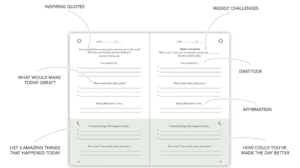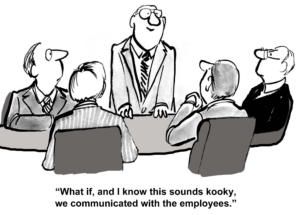In my last post, You’re Not Charging Enough For Your Services, I gave an actual example how other companies have the chutzpah to charge 50 times the price for a service because they can (and do it). They were charging almost $400K to build a website that could easily be built for $8-10K. So you can say this is 'Part Two'. I received a huge response for the post (and a lot of texts/emails/calls from readers - thank you!) who requested a number of techniques to help them raise their pricing. Here's the best part — increasing your price can positively affect people’s perceived value of your product/service.
1. Increase your fees for every new client — I recommend this strategy frequently to my clients. It's the easiest of the bunch — no pressure, no hassle for your existing clients. You don't have to go crazy, but you can jump your pricing by 10-25% and the new client will never know. This works with service-oriented practices where one client will never know your fees for another. Of course, will not work with established or advertised prices.
2. Increase your fees based upon their apparent wealth — This is an oldie, but goodie. If you find out their income, their home/location, their car, or their company/position, you can modify your fees accordingly by upwards of 25%-50%-100%. Trust me, it's done all the time. I know it might be a bit unfair, but if a service-person is standing in front of a 10,000 square foot mansion with three Bentleys in the driveway, they will certainly charge more than the person with a used car in a duplex.
3. Increase your fees by a small percent at a key time in the year — This one is a little harder than the rest, but it is equitable across your entire client list. Bump up your pricing at a certain time of the year and most people either won't notice, acknowledge the increase, question the rise and acquiesce, or defect. If it's a small increase 5-10% and it's done in a personal or professional manner, clients most often never defect. The ones that do leave don't value your services and are looking for the biggest bang for their buck. You probably don't want them as clients.
4. Extend: Provide an extra service — Your prices should be commensurate with the value you are providing. But there might be an additional service or product you can provide where your client will acknowledge the price change but won't care because of the extra service. The product or service might not cost you a lot, but over the long run, the up-charge on services will bring in mucho dollars.
5. Streamline: Reduce your service. Review the entire client/customer interaction from beginning to end. List out every step and deliverable — be very specific and granular. Stack rank each one from most important to least important to the client. Take the bottom step/deliverable and eliminate it. Or if you're a bit queasy about doing that, ask a few clients if they really need or want that deliverable. Most of the time, they don't even know it exists. If you cut out specific steps or deliverables and your clients see no diminution in their service, you are streamlining your product AND saving time and money.
6. Position differently. Add tiers. This is a bit harder than the rest, but the benefit is powerful. Take your offerings/products and re-package them. Add services, combine services, reduce services, move pricing around to sound advantageous and more specialized to the customer, while you save money (or increase fees). This strategy is frequently performed by many service industries in food and merchandise.
7. Change the packaging. A mainstay by manufacturers who dabble with size, weight, quantity, box, etc. Like positioning, you are altering the deliverable in some way to seem bigger, but in reality, it's less (or streamlined). Take a look at your product(s) and investigate how you can alter the packaging to give the appearance of delivering more to the customer.
Some of these suggestions are just suggestions — I'm not here advocating one over the other. Some are 'morally' better than others, but in the end, they're all viable alternatives to going out of business. In my 20+ years in marketing and advertising, these seven strategies are the most employed in the marketplace. Pick the one best for your business and charge more!
Can you think of any other one? I'd love to hear from YOU.



